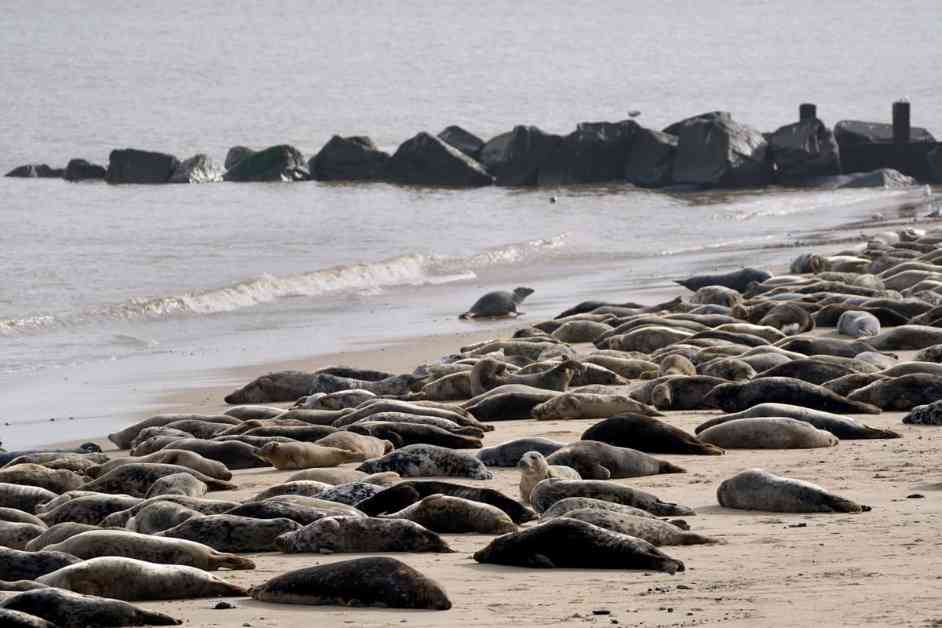Swimmers have been cautioned to keep their distance from seals to avoid the risk of contracting a serious infection known as “seal finger” if bitten by these marine mammals. The British Divers Marine Life Rescue charity issued this warning after numerous seals were spotted off the coast of Cornwall during pupping season.
“Seal finger” is caused by the presence of necrotic bacteria on the seals’ teeth, leading to a severe blood infection that can result in the loss of a finger if left untreated. It is crucial for swimmers to remember that seals are wild animals and not accustomed to human interaction. Approaching them too closely can provoke them to bite.
Despite the large population of grey seals in the UK, which accounts for 40% of the world’s grey seals and the majority of Europe’s population, these animals are still considered rare globally. It is important to appreciate and respect their presence along the coastline.
Grey seals are known to live up to 35 years in the wild and must navigate through various predators such as orcas and larger leopard seals. They primarily feed on fish, squid, and smaller prey to sustain themselves. Their ability to dive to depths exceeding 2,952 feet and remain underwater for extended periods showcases their remarkable adaptations for survival.
As we observe these incredible creatures in their natural habitat, it is essential to maintain a safe distance and admire them from afar to prevent any potential harm to both humans and seals. By respecting their space and understanding their behavior, we can continue to coexist harmoniously with these fascinating marine mammals.












